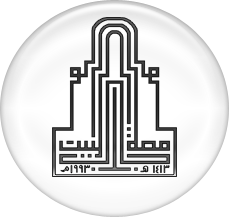| DC Field | Value | Language |
|---|
| dc.contributor.author | عامر سلامة فلاح الملاحمة | - |
| dc.date.accessioned | 2017-11-29T12:53:05Z | - |
| dc.date.available | 2017-11-29T12:53:05Z | - |
| dc.date.issued | 2016-08-03 | - |
| dc.identifier.uri | http://hdl.handle.net/123456789/1189 | - |
| dc.description.abstract | الملخص
كثر الحديث عن الشيطان مؤخراً وأصبح في ذهن الناس أنه قوة الشر التي تضربهم، فتعلقوا بالسحر والرقى غير الشرعية لدفع الشر، وكل ذلك باسم الدين. فجاءت هذه الدراسة الشرعية المقارنة عن الشيطان والمستندة فيما تذهب إليه من عرضٍ، أو إثباتٍ، أو ترجيحٍ على النصوص من القرآن والتوراة والإنجيل، من عدة جوانب، أهمها: أسماء الشيطان وصفاته، وأصله، ومصيره، وأثره على الإنسان بالصرع، أو التزاوج. وكان هناك اختلاف شديد بين حديث القرآن الكريم، وبين التوراة والإنجيل وذلك لما أصاب التوراة والإنجيل من تحريف، وتأثر بالأمم الأخرى في حديثها عن الشيطان كالبابليين. وتسربت بعض عقائد اليهود إلى فكر المسلمين اليوم فيما يخص ذلك، وخاصة مسألة أثره على الإنسان، فلا يتصف الشيطان بمطلق القدرة على إلحاق الأذى المادي بالناس، وكذلك لم يرد في القرآن دليل على التزاوج بين الجن والإنس.
Abstract
The Devil has recently become the core of many debates. People imagined him to be the harmful power of evil. Therefore, they adhered to magic and illegal spells to privet evil. All this has been in the name of religion. Hence, this comparative legal study was conducted to study the several aspects of the devil, characteristics, origin, destiny and his impact on the human beings by means of epilepsy or marriage. There is big difference between the discourse of the Holy Koran on one hand and the Torah and the Bible on the other hand because of the distortion that affected the Torah and the Bible and the influence of other nations like the Babylonians in that respect. Today, some Judaic beliefs have infiltrated into the Islamic thoughts in that concern, especially the influence of the devil on man and marriage between Jinn and humans which may produce many consequences. | en_US |
| dc.title | الشيطان في التوراة والإنجيل والقرآن: دراسة مقارنة | en_US |
| dc.type | Other | en_US |
| Appears in Collections: | المجلد(22)، العدد(4/ب)، 2016l
|

